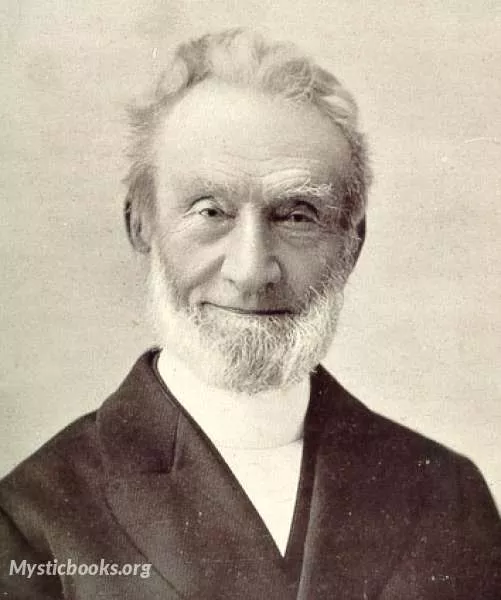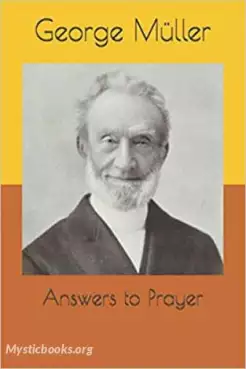
Timeline
Title
Country/Nationality
George Muller
George Müller was a Christian evangelist and the director of the Ashley Down orphanage in Bristol, England. He was one of the founders of the Plymouth Brethren movement. Later during the split, his group was labelled as the Open Brethren.
He cared for 10,024 orphans during his lifetime, and provided educational opportunities for the orphans to the point that he was even accused by some of raising the poor above their natural station in British life. He established 117 schools which offered Christian education to more than 120,000.
In 1829, Müller offered to work with Jews in England through the London Society for Promoting Christianity Amongst the Jews. He arrived in London on 19 March of that year, but by mid-May, he fell ill and did not think that he would survive. He was sent to Teignmouth to recuperate and, while there he met Henry Craik, who became his lifelong friend. Müller returned to London in September, but after ten days started to feel unwell again. He blamed his failing health on his having been confined to his house because of his studies. He asked the Society to send him out to preach but received no reply. By the end of November, he became doubtful whether the Society was the right place for him and on 12 December made the decision to leave but to wait for a month before writing. Müller returned to Exmouth in East Devon, England on 31 December for a short holiday and preached at various meetings while there. He wrote to the Society in early January, requesting that they might consider allowing him to remain with them if they would allow him "to labour in regard to time and place as the Lord might direct me". This they refused to do at a meeting on 27 January 1830, communicating this to Müller in writing, and thus bringing to an end his association with the London Society. He moved from Exmouth to Teignmouth and preached several times for Craik, which led to a number of the congregation asking him to stay and be the minister of Ebenezer Chapel in Shaldon, Devon, on a salary of £55 per annum. On 7 October 1830, he married Mary Groves, the sister of Anthony Norris Groves. At the end of October, he renounced his regular salary, believing that the practice could lead to church members giving out of duty, not desire. He also eliminated the renting of church pews, arguing that it gave unfair prestige to the wealthy (based primarily on James 2:1–9).
Müller moved to Bristol on 25 May 1832, to begin working at Bethesda Chapel. Along with Henry Craik, he continued preaching there until his death, even while devoted to his other ministries. In 1834, he founded the Scriptural Knowledge Institution for Home and Abroad, with the goal of aiding Christian schools and missionaries; distributing the Bible and Christian tracts; and providing Day-schools, Sunday-schools and Adult-schools, all upon a Scriptural foundation. By the end of February 1835, there were five Day-schools – two for boys and three for girls. Not receiving government support and only accepting unsolicited gifts, this organisation received and disbursed £1,381,171 – around £113 million in today's terms – by the time of Müller's death, primarily using the money for supporting the orphanages and distributing about 285,407 Bibles, 1,459,506 New Testaments, and 244,351 other religious texts which were translated into twenty other languages. The money was also used to support other "faith missionaries" around the world, such as Hudson Taylor. The work continues to this day.
The work of Müller and his wife with orphans began in 1836, with the preparation of their own rented home at 6 Wilson Street, Bristol for the accommodation of thirty girls. Soon after, three more houses in Wilson Street were furnished, not only for girls but also for boys and younger children, eventually increasing the capacity for children who could be cared for to 130.
In 1845, as growth continued, the neighbours complained about the noise and disruption to the public utilities, so Müller decided that a separate building designed to house three hundred children was necessary, and in 1849, at Ashley Down, Bristol, the new home opened. The architect commissioned to draw up the plans asked if he might do so gratuitously. By 26 May 1870, 1,722 children were being accommodated in 5 homes, although there was room for 2,050 (No 1 House – 300, No 2 House – 400, Nos 3, 4 and 5 – 450 each). By the following year, there were 280 orphans in No 1 House, 356 in No 2, 450 in Nos 3 and 4, and 309 in No 5 House.
Müller never sought donations from specific individuals and relied on the Almighty for all of his needs. He asked those who did support his work to give a name and address so that he could prepare a receipt. The receipts were printed with a request that the receipt be kept until the next annual report was issued so that the donor might confirm the amount reported with what he had given. The wording in the image reads: "Owing to the great increase of my work, I have found it necessary to authorize two of my assistants (Mr. Lawford and Mr. Wright) to sign receipts for donations, if needful, in my stead. Donors are requested, kindly to keep the receipts and to compare them with the "Supplement" to the Report, which records every donation received, so that they may be satisfied that their donations have been properly applied.-The "Supplement" is sent with the Report to every Donor who furnishes me with his or her name and address.-I would earnestly request all Donors (even those who feel it right to give anonymously) to put it in my power to acknowledge their donations at the time they come to hand; and should any Donor, after having done this, not receive a printed receipt within a week, they would much oblige me by giving me information at once. This interval must, of course, be extended in the case of Donors who send from places out of the United Kingdom. George Müller". Every single gift was recorded, whether a single farthing, £3,000, or an old teaspoon. Accounting records were scrupulously kept and made available for scrutiny.
Every morning after breakfast there was a time of Bible reading and prayer, and every child was given a Bible upon leaving the orphanage, together with a tin trunk containing two changes of clothing. The children were dressed well and educated – Müller even employed an inspector to maintain high standards. In fact, many claimed that nearby factories and mines were unable to obtain enough workers because of his efforts in securing apprenticeships, professional training, and domestic service positions for the children old enough to leave the orphanage.
On 26 March 1875, at the age of 71 and after the death of his first wife in 1870 and his marriage to Susannah Grace Sanger in 1871, Müller and Susannah began a 17-year period of missionary travel.
Müller always expected to pay for their fares and accommodation from the unsolicited gifts given for his own use. However, if someone offered to pay his hotel bill en route, Müller recorded this amount in his accounts.
He travelled more than 200,000 miles, an incredible achievement for pre-aviation times. His language abilities allowed him to preach in English, French, and German, and his sermons were translated into the host languages when he was unable to use the three languages which he spoke. In 1892, he returned to England, where he died on 10 March 1898 in New Orphan House No 3.
Books by George Muller

Answers to Prayer, from George Muller's Narratives
Mr. Brooks, in this compilation, has endeavored to select those incidents and practical remarks from Mr. Müller's Narratives, that show in an unmistakeable way, both to believers and unbelievers, the secret of believing prayer, the manifest hand of a...